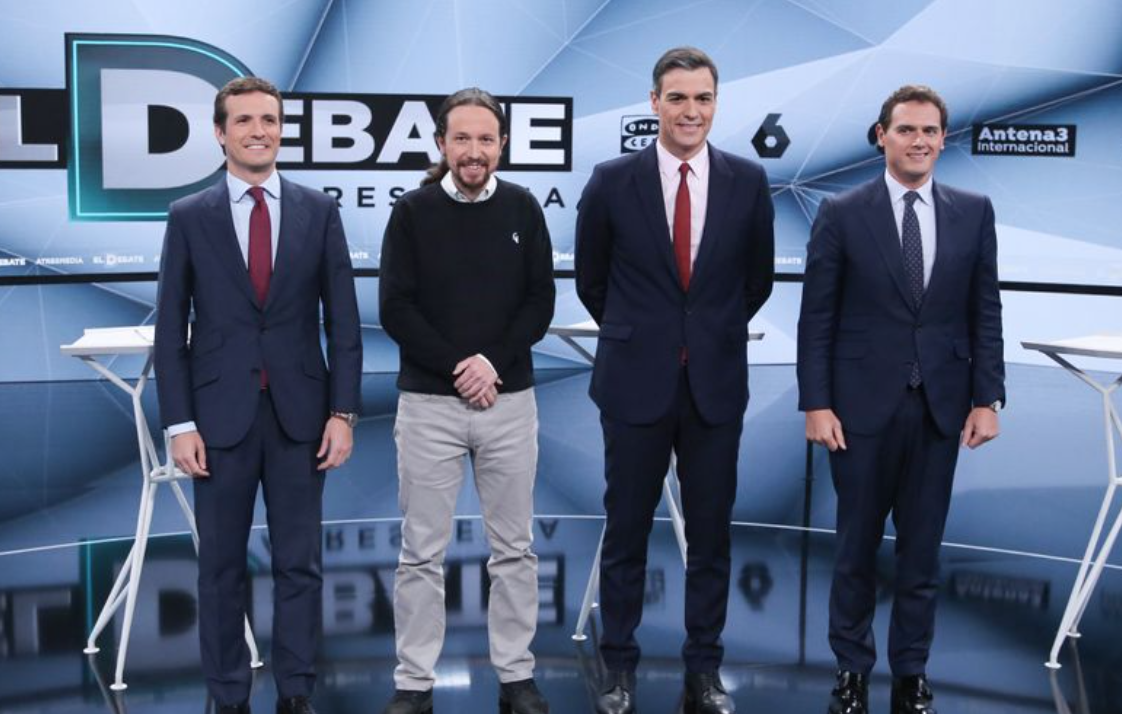The pace at which political activity tends to devour those who engage in it is an issue about which there is fewer data than there should be. While attention tends to focus on those who occupy the most prominent positions, the fact that little attention is given to thousands of people dedicated to politics contributes to the lack of a consolidated idea about the duration of a political career and its characteristics.
Rarely, however, do events allow us to reflect on the matter in order to articulate a small research agenda. What has happened in Spain in the last two and a half years in the leadership of three state formations that occupy the right, center and left of the political spectrum is of some interest in this regard and can serve as a guide to understanding current politics in Latin America where it is not difficult to find similar cases.
This is about three men born in a span of three years in Madrid, Barcelona, and Palencia, with university studies in law and political science. Two of them came to professional politics at the same age of 26 and the third at 36, although their political activism in the field of communication and consulting began to develop a decade earlier.
While two of them began their career in the autonomous framework, the other one did it in the European one, they coincided in the Parliament, reached the leadership of their respective formations at a very similar age and left politics also between November 2019 and April 2022, none of them reaching 43 years of age.
In their personal life, they were parents, one of three children and two of two children. The transition out of politics, for those who had no previous steady job, has allowed them to deploy their accumulated political capital to return to work professionally in the field of communication and research or to work for less than two years in a law firm with meager professional results.
Pablo Iglesias Turrión (Madrid, 1978), founder and leader of Podemos is a lawyer and political scientist with a Ph.D. He was a professor hired at the Faculty of Political Science and Sociology of the Complutense University of Madrid between 2003 and 2014, simultaneously working in communication (TV and press) and consulting. He was a Member of the European Parliament (MEP) for one year from 2014 when he formally entered the political arena and a member of the Spanish parliament between 2015 and 2021. He left politics in May last year after obtaining unsatisfactory electoral results in the Madrid autonomic elections to which he had run resigning from one of the vice-presidencies of the Spanish government.
Albert Rivera (Barcelona, 1979), founder and leader of Ciudadanos. He is a lawyer and worked in a financial institution (La Caixa) between 2002 and 2006. He was a deputy in the Parliament of Catalonia between 2006 and 2015 and in the Cortes between 2015 and 2019. He left politics in November of that year after the electoral failure of his party.
Pablo Casado (Palencia, 1981) is a lawyer and was a member of the Assembly of Madrid between 2007 and 2009. He held a position of trust between 2009 and 2011 and was a deputy in the Cortes from 2011 to 2022. He was the national leader of the Popular Party for 32 months and left politics in April 2022 as a result of an internal crisis in his party.
Three characters who, after a political career of fifteen years on average ceased to have the notable influence they enjoyed in a stage of Spanish politics that was gestated in the financial crisis of 2007. The political professionalization of the three was a direct consequence of the crisis and their careers culminated with the turbulence unleashed by the pandemic. Other Latin American countries may show not very different scenarios.
Thus, it is possible that Chile today is on a similar path as a result of the political renewal registered in the country after the last elections at the end of 2021, which, to a certain extent, culminated in a process initiated ten years earlier. The change has taken place in different ideological areas of the political spectrum, but if one looks at the governmental arena, Camila Vallejo, the current Minister Secretary General of Government, about to turn 34 years old, offers interesting clues.
In recent statements made to the newspaper La Tercera regarding the generational group in which she is integrated, the politician pointed out “that one of the most important things we have, as political experience, is that we were formed in the student street struggle”.
In an opposite ideological dimension, in neighboring Argentina, Javier Milei, provocative economist, communicator and analyst, raises his messianic voice from the National Congress to which he was elected as deputy in 2021 and prepares his individual incursion to the Casa Rosada (Pink House is the palace of Argentine’s national government) for 2023. He barely has more baggage than his feverish libertarian creed, the confrontation with the caste in power and the search for an electoral tuning in a country strongly hit by its adverse economic situation and its desperate climate of social inequality.
Leaderships at the fate of the conjuncture, of fortune, and the fluid era in which they are inserted.
Translated from Spanish by Janaína Ruviaro da Silva












